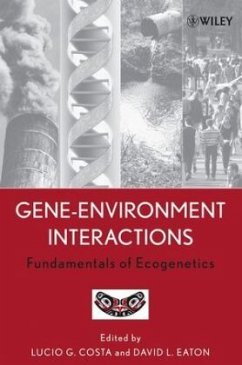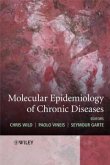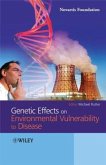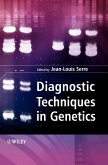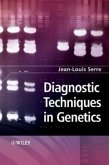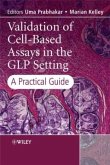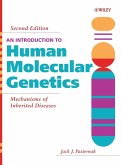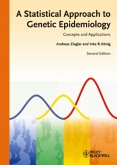Understanding the play between heredity and environment, and relating it to disease causation, is the task of ecogenetics. Gene-Environment Interactions: Fundamentals of Ecogenetics presents the first comprehensive survey of this discipline, reflecting its relationship with toxicology, epidemiology, pharmacology, public health, and other medical and biological fields.
Divided into four sections, the text elucidates key basic and advanced topics:
_ Section 1 covers fundamentals, including the history of the discipline, a discussion of the molecular laboratory tools currently available to assess genotypes, using such measurements in molecular epidemiology studies, and the statistical issues involved in their analysis.
_ Section 2 focuses on a number of key genetic polymorphisms relevant for ecogenetics, including enzymes of phase I and phase II metabolism, enzymes involved in DNA repair, as well as receptors and ion channels. This highlights characteristics of selected, widely studied genotypic/phenotypic differences, and allows discussion of how given genetic variations can influence responses to exogenous chemicals.
_ Section 3 examines gene-environment interactions through a disease-based approach, addressing how genetic polymorphisms can influence susceptibility to various diseases. Chapters cover important disease conditions such as various types of cancer, neurodegenerative diseases, cardiovascular disease, chronic pulmonary diseases, infectious diseases, diabetes, and obesity.
_ The final section discusses the ethical, legal, and social issues that arise when investigating and evaluating genetic polymorphisms in human populations, as well as the impact of ecogenetics on risk assessment, regulatory policies, and medicine and public health.
Packed with clear examples illustrating concepts, as well as numerous tables and figures, Gene-Environment Interactions: Fundamentals of Ecogenetics is a unique resource for a wide range of physicians, students, and other specialists.
Divided into four sections, the text elucidates key basic and advanced topics:
_ Section 1 covers fundamentals, including the history of the discipline, a discussion of the molecular laboratory tools currently available to assess genotypes, using such measurements in molecular epidemiology studies, and the statistical issues involved in their analysis.
_ Section 2 focuses on a number of key genetic polymorphisms relevant for ecogenetics, including enzymes of phase I and phase II metabolism, enzymes involved in DNA repair, as well as receptors and ion channels. This highlights characteristics of selected, widely studied genotypic/phenotypic differences, and allows discussion of how given genetic variations can influence responses to exogenous chemicals.
_ Section 3 examines gene-environment interactions through a disease-based approach, addressing how genetic polymorphisms can influence susceptibility to various diseases. Chapters cover important disease conditions such as various types of cancer, neurodegenerative diseases, cardiovascular disease, chronic pulmonary diseases, infectious diseases, diabetes, and obesity.
_ The final section discusses the ethical, legal, and social issues that arise when investigating and evaluating genetic polymorphisms in human populations, as well as the impact of ecogenetics on risk assessment, regulatory policies, and medicine and public health.
Packed with clear examples illustrating concepts, as well as numerous tables and figures, Gene-Environment Interactions: Fundamentals of Ecogenetics is a unique resource for a wide range of physicians, students, and other specialists.
"...a must-have for all toxicology and pharmacology students as well as a great resource for researchers and physicians." - Environmental Health Perspectives, June 2006
"...a vital in-office reference for any scientific researcher dedicated to the study of genetics...invaluable to public health researchers who are look at how global threats live Avian Flu might spread to the general populous...an indispensable reference to all health science libraries." - The Electric Review, March/April 2006
"...a vital in-office reference for any scientific researcher dedicated to the study of genetics...invaluable to public health researchers who are look at how global threats live Avian Flu might spread to the general populous...an indispensable reference to all health science libraries." - The Electric Review, March/April 2006
"...highly recommended for academic libraries that have undergraduate and graduate studies in genetics, toxicology, and pharmacology." (E-STREAMS, September 2007)
"...a great accomplishment, and it can well serve as a primary, extensively-referenced text..." (American Journal of Medical Genetics, Part A, August 1, 2007)
"...a must-have for all toxicology and pharmacology students as well as a great resource for researchers and physicians." (Environmental Health Perspectives, June 2006)
"...a vital in-office reference for any scientific researcher dedicated to the study of genetics...invaluable to public health researchers who are look at how global threats live Avian Flu might spread to the general populous...an indispensable reference to all health science libraries." (The Electric Review, March/April 2006)
"...a great accomplishment, and it can well serve as a primary, extensively-referenced text..." (American Journal of Medical Genetics, Part A, August 1, 2007)
"...a must-have for all toxicology and pharmacology students as well as a great resource for researchers and physicians." (Environmental Health Perspectives, June 2006)
"...a vital in-office reference for any scientific researcher dedicated to the study of genetics...invaluable to public health researchers who are look at how global threats live Avian Flu might spread to the general populous...an indispensable reference to all health science libraries." (The Electric Review, March/April 2006)

